Wishbone Recording Studio
WISHBONE RECORDING STUDIO
1920 Webster Street, Muscle Shoals, AL
256-389-1996
www.wishbonestudios.com
Wishbone Productions was established in 1972 by songwriter-musician Terry Woodford and former FAME keyboard player Clayton Ivey. In the beginning, Woodford and Ivey used a variety of different studios in the Shoals and elsewhere to record their artists, and released their first full-length album production, Reuben Howell’s self-titled debut, in April 1973. The following year, the pair got their big break when they signed an exclusive production arrangement with Howell’s label, Motown Records.
“We were their first white producers. We had an apartment in California. They gave us an office, and we could actually sign talent to Motown.”
—Terry Woodford
In 1975, Woodford and Ivey joined other Motown producers and artists in contributing to "symphonic disco-funk studio project" The Magic Disco Machine. Their instrumental "Scratchin'" appeared on the project's debut album, Disc-O-Tech, and was also featured as the B-side to the album's second single, "Control Tower." It has since gone on to become one of the ten most sampled tracks of the hip hop era, and is currently being used on the Netflix series The Get Down.
Wishbone ended its ties with Motown in 1976 and built its own studio on Webster Avenue, across from the Muscle Shoals Airport. It was a state-of-the-art facility at the time, boasting the first 24-track recorder in the Shoals area.
Woodford and Ivey further distinguished themselves from local competitors in their treatment of staff songwriters. While other local publishers paid writers "only when a song produced an income," Wishbone supported songwriters during their "developmental stages," ensuring that they "had money to pay for food and rent by placing them on draw as soon as the company signed them to a contract."
“When I first started out in publishing, I studied the charts for six months and tried to pick out technically all the ingredients that seemed to me to be common to hit records, and apply these rules to the songs. The writers eventually learn them, and applying the rules becomes automatic. If the songs conform to most of the rules, they are acceptable.”
—Terry Woodford
Among the successful local songwriters who honed their craft at Wishbone were Mac McAnally and Robert Byrne. Woodford and Ivey themselves co-wrote (with staff songwriter Tommy Brasfield) the Wishbone-recorded hit “Angel in Your Arms,” which was named Billboard magazine's “Song of the Year” in 1977.
“One of my greatest abilities was to take a songwriter and develop that person into someone who wrote for money. Songwriting’s about ninety-five percent craft and five percent inspiration.”
—Terry Woodford
The studio closed in the mid-1980s, when Woodford decided to liquidate Wishbone Productions and devote his attention to the production and marketing of Baby Go to Sleep, a lullaby tape used to calm critically ill infants. Bud McGuire bought the studio and reopened it during the 1990s. It is currently owned by Billy Lawson, a former Wishbone songwriter.
Personnel
Owner:
• Billy Lawson
Producers:
• Clayton Ivey
• Terry Woodford
• Alan Schulman
• Billy Lawson
Writers and Musicians:
• Mac McAnally
• Robert Byrne
• Tommy Brasfield
• Donny Lowery
• Brandon Barnes
• Jesse Boyce
• Billy Lawson
• Barbara Wyrick
• Hershey Reeves
• Richard Butler
• Joan Carol Butler
• Kevin Lamb
• Frank Johnson
Discography
1976:
• Pete Carr, Not a Word on It
• Garland Green, "I.O.U."
1977:
• Hot, "Angel in Your Arms"
• Hot, "The Right Feeling at the Wrong Time"
• Hot, "You Can Do It"
• Hot, Hot
• Hank Williams, Jr., "Mobile Boogie"
• Hank Williams, Jr., One Night Stands
• Mac McAnally, "It's a Crazy World"
• Mac McAnally, Mac McAnally
• Mesa, "Sailing Ships"
• Joanne Spain, "Elevator"
• Garfield, "All Alone Again"
• Garfield, Out There Tonight
• Barbara Wyrick, "Left Over Love"
• Barbara Wyrick, Barbara Wyrick
• Phillip Jarrell, I Sing My Songs for You*
• Hank Williams, Jr., "I'm Not Responsible"
• Bill Brandon, Bill Brandon*
• Ann Sexton, The Beginning*
• LeBlanc and Carr, Midnight Light*
• Joanne Spain, "Kyrie Eleison"
• Hoodoo Rhythm Devils, "Gotta Lot of Love in My Soul"
1978:
• Pete Carr, Multiple Flash*
• Mac McAnally, No Problem Here
• Wayne Newton, Change of Heart
• Saturday Night Band, Come On Dance, Dance
• Hoodoo Rhythm Devils, "Working in a Coal Mine"
• Hoodoo Rhythm Devils, All Kidding Aside
• Rudy Love and the Love Family, This Song Is for You*
• Hot, "I Don't Wanna Be the Reason That You Leave Her"
• Hot, "If That's the Way You Want It"
• Hot, If That's the Way You Want It... You Got It
• Thelma Houston, "I'm Not Strong Enough to Love You Again"
• William D. Smith, "Sweetie Pie"
• William D. Smith, Smitty
• John Kay, "Give Me Some News I Can Use"
• John Kay, All in Good Time
• Wayne Newton, "Housewife"
• Robert Byrne, "Learning to Live Without You"
• Robert Byrne, "Baby Fat"
• Donny Lowery, "He Can Be an Angel"
1979:
• Hank Williams, Jr., "Family Tradition"
• Gwen Owens, "I Don't Want to Dance No More"
• Motherlove, "Could It Be Love I Found Tonight"
• Roy Orbison, "Easy Way Out"
• Roy Orbison, "Poor Baby"
• Roy Orbison, Laminar Flow
• Robert Byrne, Blame It on the Night
• FCC, "It Took a Woman Like You"
• FCC, "Do You Believe in Magic"
• FCC, "Baby I Want You"
• FCC, Baby I Want You
• Hot, Strong Together
1980:
• Mac McAnally, "It's My Job"
• Mac McAnally, Cuttin’ Corners
• Vicki Sue Robinson, "Nothin' But a Heartache"
• Millie Jackson, For Men Only
• Teddy Huffman and the Gems, Incredible
• FCC, Do You Believe in Magic
1981:
• Kelly Hunt and the Kinetics, Blue Light Special
• Byrne and Barnes, An Eye for an Eye
1983:
• Mac McAnally, Nothing But the Truth
• Mac McAnally, "Minimum Love"
• Allen Collins Band, Here, There and Back*
1984:
• Rick Bowles, No Man's Land
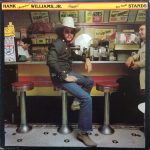
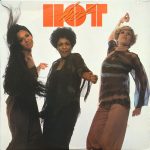
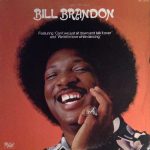
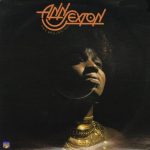
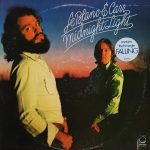
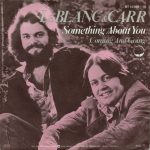
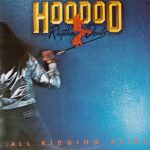
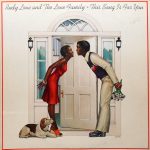
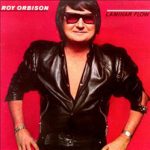
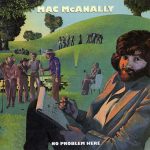
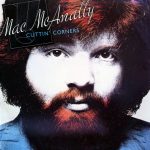
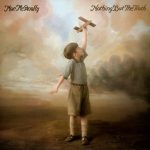
Sources:
Terry Woodford, interview by Brian Corrigan, May 30, 2018.
Christopher S. Fuqua, Music Fell on Alabama (Huntsville: Honeysuckle Imprint, 1991).
Dick Cooper, Times Daily, c. 1972-1974.
Lola Scobey, Cash Box, August 27, 1977.
Terry Pace and Robert Palmer, Times Daily, August 1, 1999.
Alabama Music Hall of Fame.




